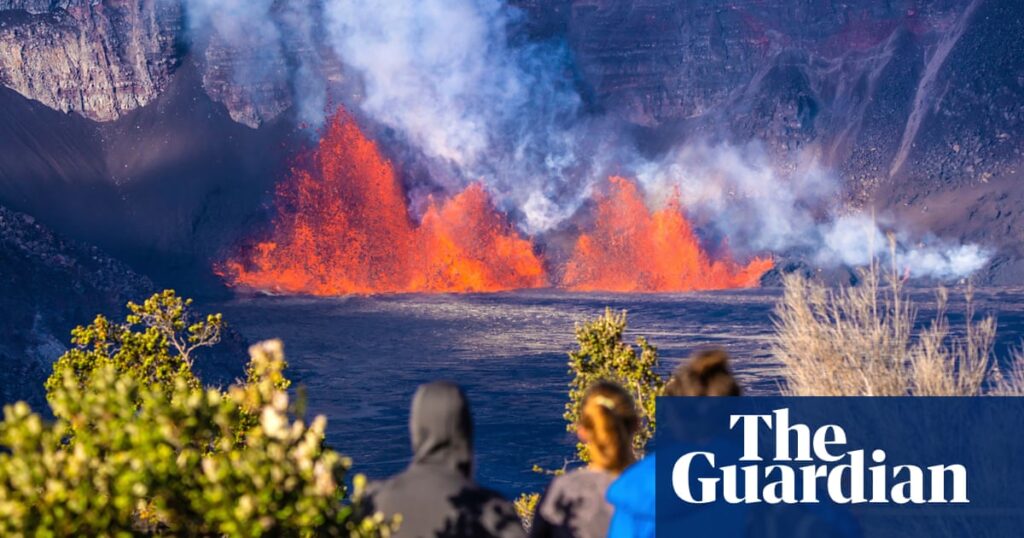Hawaii national park rangers have reissued warnings about volcano tourism after a small child wandered off and came within feet of a 400ft cliff near the rim of Kīlauea volcano, whose latest eruption had begun on 23 December.
“The hazards that coincide with an eruption are dangerous, and we have safety measures in place including closed areas, barriers, closure signs and traffic management,” said park superintendent Rhonda Loh in a statement.
“Your safety is our utmost concern, but we rely on everyone to recreate responsibility. National parks showcase nature’s splendor but they are not playgrounds,” Loh added.
The United States Geological Survey (USGS) Hawaiian volcano observatory reported that the eruption had entered its second pause and, as it could restart at any time, toxic gas emissions were still high. Glassy volcanic particulates, called tephra, blanketed the closed portion of Crater Rim Drive downwind of the lava fountains that were active over the last few days.
In an advisory, the park service warned that visitors may encounter unstable ground, sharp volcanic rocks and hidden lava tubes that pose risks of injury. It added that volcanos can produce hazardous gases like sulfur dioxide, and that weather conditions can change rapidly.
The child had wandered off from his family “in a split second”, park officials said, as the family stood at the top of a 400ft cliff, admiring the lava glow within Kaluapele – the Kīlauea caldera – at sunset on 23 December. The ongoing eruptions of Kīlauea, now the fifth since 2020, have sent lava fountains as high as 262ft with molten material.
The toddler ran toward the edge of the cliff before his mother snatched him up just feet away from what likely would have been a fatal fall.
Officials at active volcanos often struggle to balance the spectacle of an eruption with safety. They say it pays to know whether the earth’s expulsion is effusive and explosive.
Effusive eruptions involve a relatively gentle flow of lava, often erupting from a fissure with the lava slowly creating a broad, cone-shaped mountain of hardened lava. Under those conditions, the main risks include lava flows and harmful, invisible gases.
Explosive eruptions carry the risks of ash fall, the potential for landslides and rockfalls, as well as pyroclastic flows – fast-moving and lethal clouds of hot gas and volcanic matter that cause severe burns, fatalities and destruction of anything in their path – volcanic blasts and volcanic mudflows.
Travel insurer World Nomads advises researching your volcano destination, familiarizing yourself with the evacuation routes and procedure, and visiting with a licensed guide.

